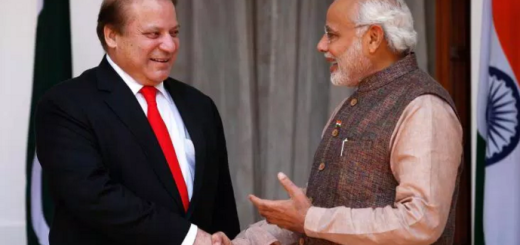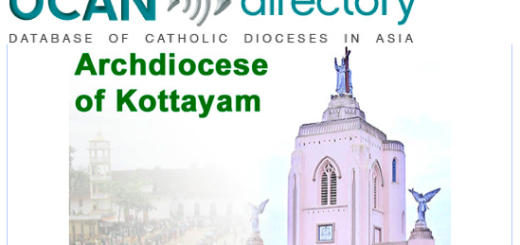Abandoned House – Cardiac arrest of democracy?

Editorial | Published:December 9, 2016 in Indian Express
Government, Opposition must heed President Mukherjee’s rebuke, L.K. Advani’s lament.
 (Arresting and hanging the deadly cancer of Black money is most commendable. Demonetization evidently is an effective tool of heart surgery. Modi and his battalion shout that the operation, after one month now, is successful and the public shout that the patient is dead – at least over 70 poorest of the poor died on the queue to banks and ATMs. Who is to blame if the team of doctors – parliamentarians who don’t meet, discuss and discover the true solution to the malaise? Parliament is the talking shop and Modi is an expert at public speaking. He does it every week through his Man Ki Bath (some call it Monkey bath) and twitter. They are not the forums to speak in democracy. Modi beats all in long distance running, called the art of speaking, only he is running out of track (Bene currit, extra viam!) What use then?(Note: What is parliament if not the hear of democracy? Think of it coming to a sudden halt. Failure to revive it will result in what happened to Jayalalithaa ever since her cardiac arrest was announced. We and Tamilnadu still have to recover from its after effects.
(Arresting and hanging the deadly cancer of Black money is most commendable. Demonetization evidently is an effective tool of heart surgery. Modi and his battalion shout that the operation, after one month now, is successful and the public shout that the patient is dead – at least over 70 poorest of the poor died on the queue to banks and ATMs. Who is to blame if the team of doctors – parliamentarians who don’t meet, discuss and discover the true solution to the malaise? Parliament is the talking shop and Modi is an expert at public speaking. He does it every week through his Man Ki Bath (some call it Monkey bath) and twitter. They are not the forums to speak in democracy. Modi beats all in long distance running, called the art of speaking, only he is running out of track (Bene currit, extra viam!) What use then?(Note: What is parliament if not the hear of democracy? Think of it coming to a sudden halt. Failure to revive it will result in what happened to Jayalalithaa ever since her cardiac arrest was announced. We and Tamilnadu still have to recover from its after effects.
It has prompted a President and a BJP veteran Advani to speak up: “For God’s sake, do your job”, streets, not Parliament is the place to sit in Dharna. Has Modi and his BJP battalion gone deaf? The opposition should find better ways to get Modi discuss in Parliament and not allow him to kill democracy. james kottoor, editor)
The announcement of demonetisation of Rs 1,000 and Rs 500 notes on November 8 has shocked the system and changed the subject. There is a hectic and vivid discussion on the merits of the move and the manner of its implementation in various forums, even as everyone agrees on the broad and unexceptionable intent to weed out black money. One month on, the Opposition marked the day with protests near the Gandhi statue in the Parliament complex and the prime minister defended his campaign on Twitter.
Yet, neither in the course of this month, nor on Thursday when it concluded, did this consequential issue fully enter Parliament. For all the argument and contention it has touched off outside the House, it has only triggered adjournment and silence inside. It is not surprising, then, that President Pranab Mukherjee should have lamented the constant disruption on Thursday, rebuking parliamentarians: “For God’s sake, do your job. You are meant to transact business.” Or that BJP elder L.K. Advani should have snapped a day earlier, asking: “Who’s running the House?” With every passing day, a spectre is coming closer, growing more real: One of the most daring moves by a government in recent times, with important short-term effects and large long-term consequences, could bypass the House in a parliamentary system.
The Lok Sabha has not had a full discussion because of an impasse over the particular rule — voting or non-voting — that it should be held under. In Rajya Sabha, debate has been stalled because of Opposition insistence and government intransigence on the terms of the prime minister’s participation in it. Whatever be the reason, the fact remains, in the president’s words, that “people send their representatives to speak, not to sit in dharna, or not to create any trouble on the floor. For that the streets are still available. Only weeks in a year, Parliaments are in session…”
While the Opposition must shoulder the blame for this abandonment of the parliamentary institution, the government must also reflect on its own abdication of responsibility. In the last instance, it is the task of the government to run the House, and to, if necessary, demonstrate the statecraft or the plain generosity of spirit needed to keep it running.
Of course, the present stillness of the House in a time of national turbulence is not new. For a long time now, Parliament has seemed progressively denuded of its vitality and relevance. And the crisis goes deep: It does not seem that there are any political or electoral penalties to pay for MPs’ non-performance in Parliament. Yet, the government must ask itself if, having unleashed a potentially gamechanging measure, it can afford not to engage with the concerns of the people’s representatives while appealing directly to the people.
















